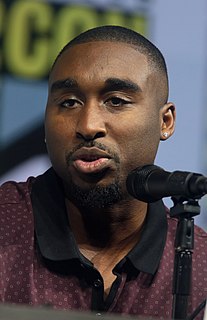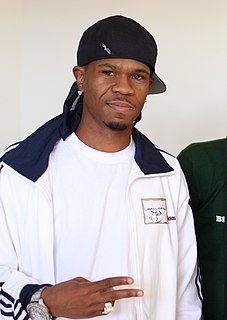A Quote by Jason Whitlock
We have allowed our youths to buy into a culture (hip hop) that has been perverted, corrupted and overtaken by prison culture. The music, attitude and behavior expressed in this culture is anti-black, anti-education, demeaning, self-destructive, pro-drug dealing and violent.
Related Quotes
This is more in regards to celebrities. What we've got to understand is that we are the influencers of the hip-hop culture, the black culture. We are the way out, you feel what I'm sayin'? As far as who we look to and where we get stuff from - hip-hop culture is influencing the world, really, but especially the black communities.
Since the 1960s, mainstream media has searched out and co-opted the most authentic things it could find in youth culture, whether that was psychedelic culture, anti-war culture, blue jeans culture. Eventually heavy metal culture, rap culture, electronica - they'll look for it and then market it back to kids at the mall.
I think that hip-hop should be spelled with a capital "H," and as one word. It's the name of our black people culture, and it's the name of our identity and consciousness. I think hip-hop is not a product, but a culture. I think rap is a product, but when hip-hop becomes a product, that's slavery, because you're talking about people's souls. To me, that's the biggest problem.
I've been able to be a part of every movement in music over the last several decades. The only one that I haven't been involved in so much is hip-hop, which I chose not to be involved in because it felt like I would be what they called "perpetrating." It felt like hip-hop was so much of its own culture and that I was not part of that culture.
I am trying to get folks outside the hip-hop culture to understand why, despite the negatives, young people find hope and refuge in hip-hop. I'm hoping that young people immersed in the culture will work harder to capitalize on the possibilities for great social change that hip-hop represents as a national unified cultural youth movement.
If I were to critique myself - step out of KRS objectively and look at him - I would say that KRS has introduced the concept of being hip-hop, not just doing it. The concept of rap as something we do, while hip-hop is something we live. The concept of living a culture. Don't just look at hip-hop as rap music, see it as a culture.
After many years of hip-hop as a nation we should have the sophistication to accept that their are distinctions between the corporate manifestation of hip-hop, sold as a commodity and package with sensational race, sex and violent imagery, and the hip-hop culture that kids are living everyday at a local level, which often doesn't dabble in that terrain.





























